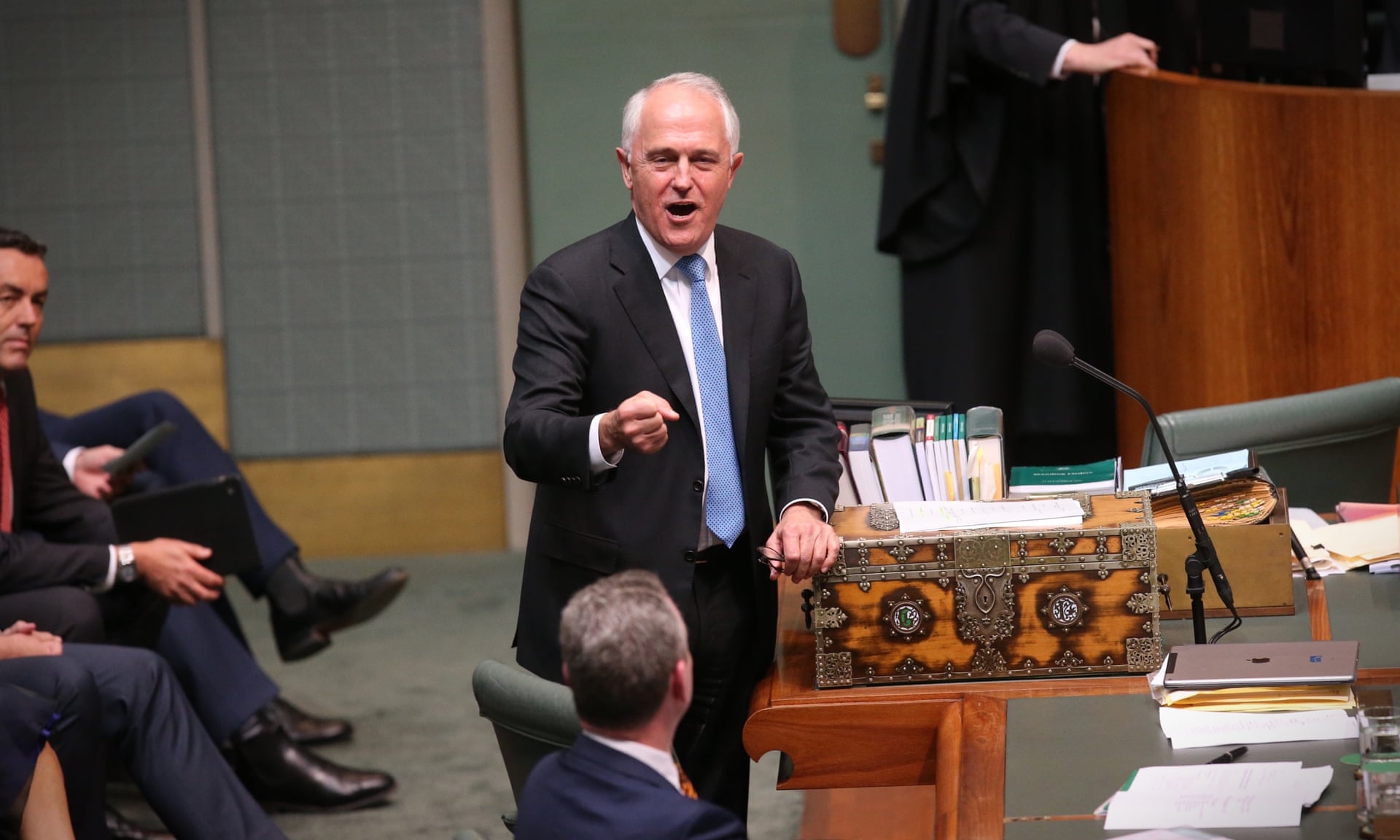By Jason Scott Turnbull says Australia will stand up to China
Australia is set to become the first developed country to pass sweeping laws against foreign interference, in a move aimed at reducing Chinese meddling in national affairs and seen as the inspiration for legislation introduced in the U.S. Congress.
Two bills that toughen penalties for espionage and require people or organizations acting in the interests of overseas powers to register and disclose their ties were debated in the Senate Wednesday, a day after passing the lower house.
Two bills that toughen penalties for espionage and require people or organizations acting in the interests of overseas powers to register and disclose their ties were debated in the Senate Wednesday, a day after passing the lower house.
They are supported by both major political parties, meaning they have enough support to become law as early as Wednesday.
“This is all about security and sunlight and sovereignty,” Prime Minister Malcolm Turnbull told reporters in Canberra.
“This is all about security and sunlight and sovereignty,” Prime Minister Malcolm Turnbull told reporters in Canberra.
“We want to ensure that people who influence and make decisions about our democracy are Australians.”
The law risks exacerbating a diplomatic spat with Beijing, triggered in December when Turnbull said reports of Chinese meddling in Australia’s government, media and universities highlighted the need for the legislation.
The law risks exacerbating a diplomatic spat with Beijing, triggered in December when Turnbull said reports of Chinese meddling in Australia’s government, media and universities highlighted the need for the legislation.
Since then, Australian exporters have blamed strained ties for delays of shipments into China, while the U.S. has pushed ahead with its own legislation.
“These laws are a firm way for Australia to define its interests and protect its sovereignty as China seeks to expand its influence,” said John Blaxland, a senior fellow at the Australian National University’s Strategic and Defence Studies Centre in Canberra.
“These laws are a firm way for Australia to define its interests and protect its sovereignty as China seeks to expand its influence,” said John Blaxland, a senior fellow at the Australian National University’s Strategic and Defence Studies Centre in Canberra.
“Chinese officials may be uncomfortable” because it will probably be demonstrative for other liberal, Western democracies, he said.
While Turnbull’s government has attempted to play down the diplomatic tensions, Chinese officials have been blunt.
While Turnbull’s government has attempted to play down the diplomatic tensions, Chinese officials have been blunt.
Foreign Minister Wang Yi last month blamed the difficulties on Australia while on June 19 China’s ambassador called for an end to the “Cold War mentality” and bias and bigotry affecting the relationship.
Tensions began to escalate last year when Sam Dastyari resigned as an opposition senator over close ties with a Chinese-born businessman, who paid a $1,200 travel bill for him.
The former lawmaker also warned the businessman that his phones were being tapped by Australian intelligence agencies.
Channeling Mao
Turnbull cited Dastyari’s behavior when the government introduced the foreign-interference legislation.
Using broken Mandarin, Turnbull told reporters that the Australian people “stand up and assert their sovereignty” -- adapting a phrase attributed to Mao Zedong in 1949.
A worsening spat with Beijing could have economic implications for Australia, which is the most China-dependent major economy in the world.
The Australian legislation will widen the definition of espionage offenses and toughen penalties, as well as require registration and additional disclosure for parties acting on behalf of foreign governments.
A worsening spat with Beijing could have economic implications for Australia, which is the most China-dependent major economy in the world.
The Australian legislation will widen the definition of espionage offenses and toughen penalties, as well as require registration and additional disclosure for parties acting on behalf of foreign governments.
The two bills were agreed upon after being amended by a parliamentary committee to include protections for charities and religious groups.
Australian Federal Police Commissioner Andrew Colvin has welcomed the legislation amid what he’s called “unprecedented levels of foreign activity.”
Australian Federal Police Commissioner Andrew Colvin has welcomed the legislation amid what he’s called “unprecedented levels of foreign activity.”
U.S. Bill
The legislation has been closely followed in the U.S., which shares Australia’s concerns about China’s militarization of the South China Sea and is engaged in a trade war with Beijing.
A bill was introduced into Congress earlier this month by New Jersey Republican Chris Smith and six co-sponsors that would require the Trump administration to deliver a report to Congress within one year on Chinese attempts to influence U.S. politics, “including efforts to corrupt United States governmental or nongovernmental institutions or individuals.”
The bill isn’t expected to receive a House vote for months, however.
China is making a coordinated effort to influence U.S. affairs through surveillance, Smith said in an interview from Washington on Monday.
“It’s an all-out effort,” by China, Smith said.
China is making a coordinated effort to influence U.S. affairs through surveillance, Smith said in an interview from Washington on Monday.
“It’s an all-out effort,” by China, Smith said.
“It’s happening all over Europe, all over Latin America and all over Africa. It’s happening in Australia as well, without a doubt.”

Aucun commentaire:
Enregistrer un commentaire